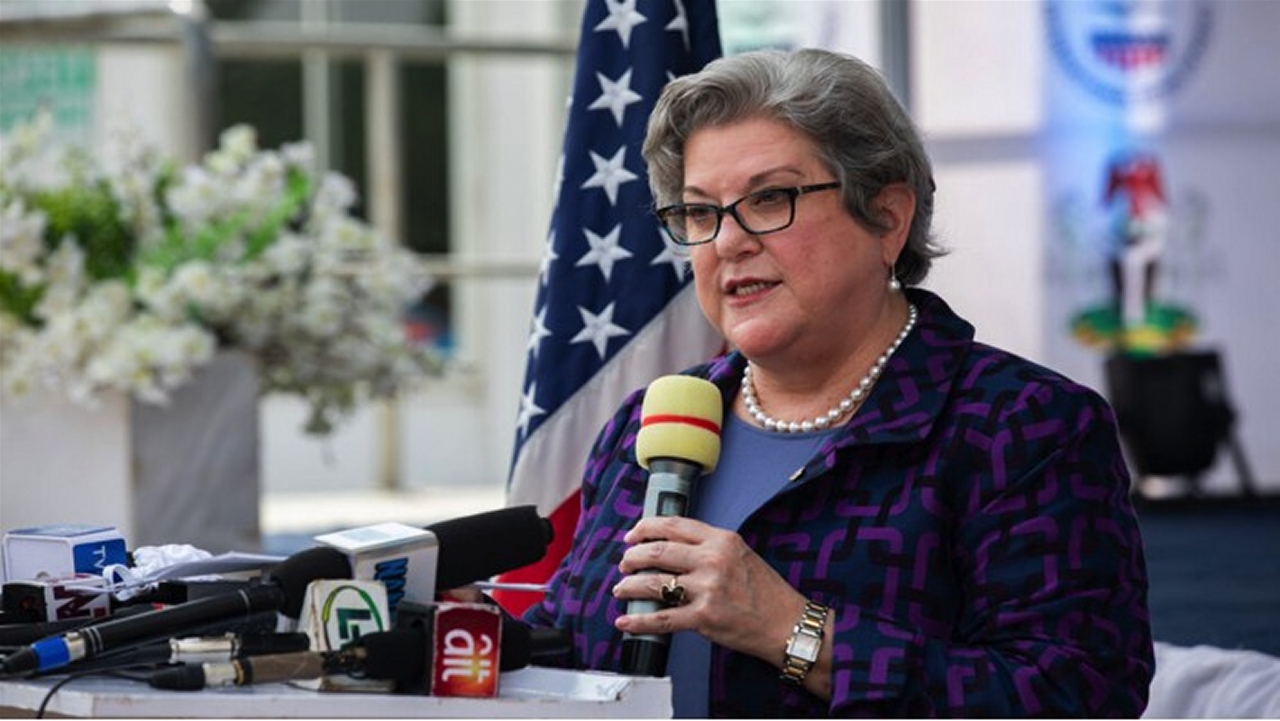Brown envelope journalists are ruining Nigeria’s media by eroding the public’s trust in the media, says the U.S. Ambassador to Nigeria, Mary Beth Leonard.
“Brown envelope journalism undermines the public’s trust in the media, erodes journalistic integrity, and defeats the media’s ability to play a transparent oversight role over government actions,” said the U.S. envoy.
Brown envelope is derived from cash inducements hidden in brown envelopes and given to journalists during press briefings.
According to Ms Leonard, one of the challenges that democracies worldwide face is an “unfortunate, pervasive lack of trust in the media.”
She decried financial inducement of journalists, saying that the “practice corrodes the institutional position of the media as what we refer to as the “Fourth Estate,” or one of our pillars of democracy.
Ms Leonard also urged Nigerian media to leverage their right to press freedom by countering propaganda and disinformation through regular and impartial fact-checking.
Speaking during a town hall meeting hosted by the Nigerian Guild of Editors on Thursday in Lagos, the U.S. ambassador said a team approach was needed to help improve public trust in the media.
The media-focused meetings and two-day workshops for over 200 editors will take place in turns in the six geopolitical zones across the country is supported by the U.S. embassy in Nigeria.
It was themed ‘Agenda Setting for Sustainable Democratic Culture’.
The U.S. ambassador also said access to accurate, unbiased information was critical to democracy.
“It ensures that citizens make responsible, informed choices rather than acting out of ignorance or misinformation. Information that is publicly accessible to all ensures that elected representatives uphold their oaths of office and carry out the wishes of those who elected them,” the U.S. envoy further noted.
She noted that the Nigerian media could ensure that citizen voices were heard, which might help reverse voter apathy.
“Too often Nigerian elections are personality-based and lose focus on critical issues such as unemployment, inflation, and lack of health care,” Ms Leonard stressed, adding that the media could hold the candidates accountable for discussing issues.
The U.S. envoy added that media coverage of elections could encourage more turnout if all outlets focused on the issues that affected the daily lives of constituents.
Patronage politics, corruption, inequality, and the failure of many democratic governments to deliver for their citizens fuel public and media doubts about the democratic model, causing them to lose hope and accept the status quo as normal,” she stated.
The U.S. ambassador urged the media to pay attention not just to society’s problems but also to possible solutions.
“When you uncover stories that others have tried to hide or deny, inevitably prosecutions follow, and accountability is attained through the voice of the people at the ballot box,” Ms Leonard explained.
According to her, most vicious trolls on the internet are shielded by anonymity.
The ambassador disclosed that the U.S. recently created a new Bureau of Cyberspace and Digital Policy to fight back against disinformation, stand up for internet freedom and reduce the misuse of surveillance technology.
“Too often, technology is being used to silence dissent and prosecute citizens – and democracies must answer the call to fight back against disinformation, stand up for internet freedom, reduce the misuse of surveillance technology, and establish standards of responsible conduct in cyberspace,” stated Ms Leonard. “Democracy works at its best where there is a multiplicity of voices from broad segments of society which represent every race, gender and ethnicity addressing a plethora of issues from access to opportunity, health, and prosperity.”


